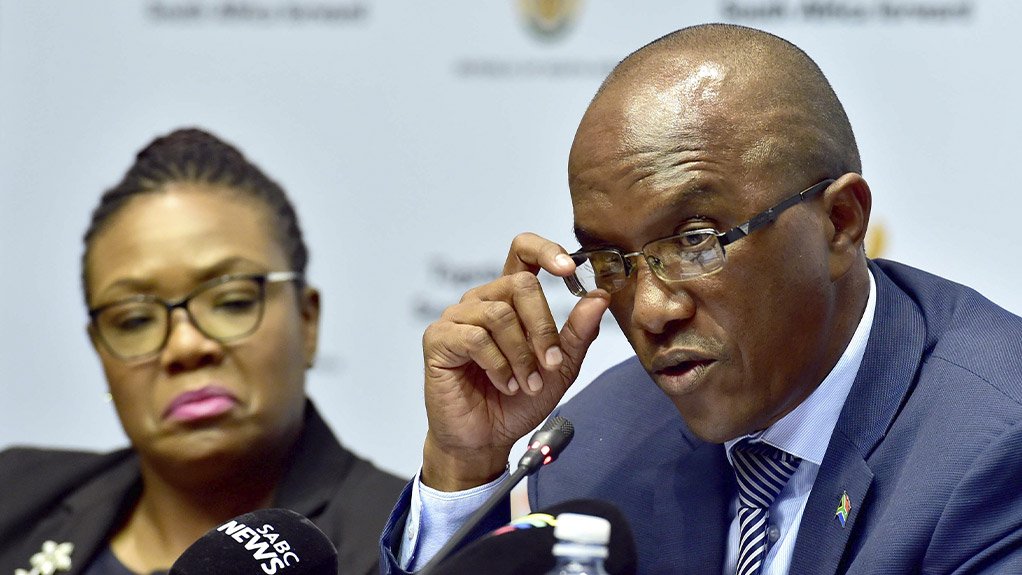The latest audit results of South African municipalities, released on Wednesday, show the money pumped into municipalities compliments of taxpayers and ratepayers continue to be mismanaged by many of the country's municipalities.
At a media briefing to release the results for period July 1, 2017, to June 30, 2018, Auditor General Kimi Makwetu revealed only 18 of the 257 municipalities assesses received clean audits, half were unqualified.
"These undesirable state of deteriorating audit outcomes shows that various local government role players have been slow in implementing and in many instances even disregarded the audit office recommendations," he said.
"As a result, the accountability for financial and performance management continues to worsen in most municipalities."
Twelve of the municipalities with clean audits were in the Western Cape, two in the Eastern Cape and one each in Gauteng, KwaZulu-Natal, the Northern Cape, and Mpumalanga. Not a single municipality in the Free State, Limpopo and the North West provinces.
Only 19 percent of municipalities could provide auditors with financial statements without material misstatements. A material misstatement is defined as untrue information in a financial statement that could affect the financial decisions of one who relies on the statement.
The percentage of municipalities which had findings against them for non-compliance with to supply chain management policies increased from 72 to 82.
Irregular expenditure remains a multi-billion rand problem, and although a slight decrease was recorded from R29.7-billion to R25.2-billion, Makwetu said this picture could change.
"The amount could be even higher, as 46 percent of the municipalities were either qualified on the incomplete disclosure of irregular expenditure or disclosed in the financial statements that they did not know the full extent of irregular expenditure," Makwetu said.
Irregular spending refers to money spent in contravention of supply chain management policies and could in some cases be an indication of corruption.
Makwetu said the continued failure to improve audit results at many municipalities could be attributed to municipal councils and senior staff disregarding the AG's recommendations and taking no action against those who flouted the laws governing spending at municipalities.
"A total of 74 percent of the municipalities did not adequately follow up allegations of financial and supply chain management misconduct and fraud, and 45 percent of the municipalities did not have all the required mechanisms for reporting and investigating transgressions and possible fraud."
Makwetu cited an example of an accountability failure in Metsimaholo in the Free State. Auditors found that R21.9-million had been budgeted for the Oranjeville sports complex. While 21.7-million had already been spent, when the audit team did a site visit, all they found was a fence with no building in sight.
It was further found that a third of municipalities were not assessing the condition of water and sanitation infrastructure in their areas, which Makwetu said resulted in massive water losses.
A third of municipalities were struggling to balance their books, with the audit outcomes showing that 34 percent of them disclosed that their spending exceeded their incomes, resulting in a total deficit of around R5.8-billion.
Makwetu bemoaned the fact that his auditing teams continue to face pressure to change audit opinions, with instances of intimidation and threats against auditors still ongoing.
"The audit environment became more hostile, with increased contestation of audit findings and pushback whereby our audit processes and the motives of our audit teams were questioned," he said.
While mayors, municipal councils and municipal managers might have gotten away with allowing the dismal state of affairs to continue up to now, amendments to the Public Audit Act, which gives the AG more teeth, could put an end to the pervading culture of impunity.
A recommendation by the AG that a material irregularity be rectified, will now be binding and come with a deadline for implementation. If no action is forthcoming, Makwetu could issue a certificate of debt in the name of the municipal council or manager to repay the amount of money in question.
EMAIL THIS ARTICLE SAVE THIS ARTICLE
To subscribe email subscriptions@creamermedia.co.za or click here
To advertise email advertising@creamermedia.co.za or click here











